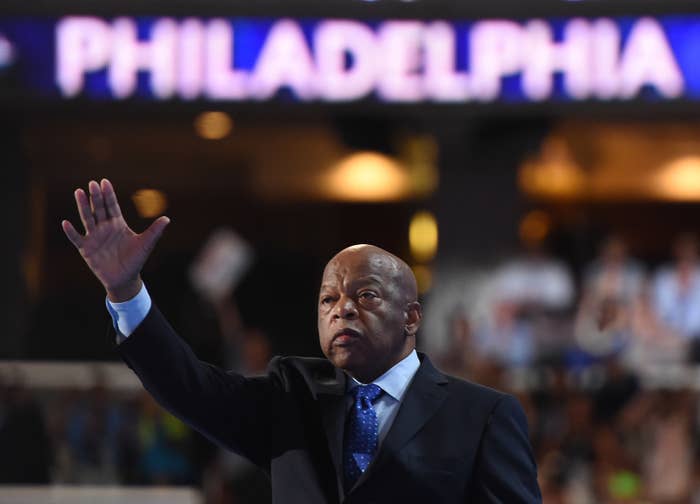
WASHINGTON — Rep. John Lewis said he believes women were discriminated against in the civil rights movement of the mid-20th century.
On Wednesday night, Lewis, who was the young chairman of the Student Nonviolent Coordinating Committee (SNCC), was asked a question about whether the current civil rights movement — which emphasizes fighting police brutality and racial discrimination, and is often led by women — needs central leadership. Lewis said the civil rights movement of the last century was “dominated” by men, preachers who “treated the movement like it was their own church.”
“Most of the leaders of the movement were ministers,” Lewis said. “There were some women like Ella Baker, Diane Nash, a student in Nashville, one of leaders, the leader of the Little Rock Nine effort — and others, you had Gloria Richardson. But I truly think and believe women were discriminated against.”
Lewis took the question at an event with Politico, where he addressed the state of the election, his own history as a civil rights leader, and his belief that “Hillary Clinton is going to prevail.”
But his comments on the movement reflected a long observed but rarely addressed part of the movement’s treatment of women.
“They did all of the work, they did the heavy lifting,” Lewis said. “They were kept back.”
Dr. King and others, he said, had credit bestowed on them for the successful Montgomery Bus Boycott. “But it was a woman, a teacher at Alabama State College, Jo Ann Robinson that said we should boycott the buses. [She said] you should organize your students. So we made leaflets and people spread them all over the city of Montgomery. Then people started staying off the buses.”
On the current movement, Lewis SNCC had adopted a group leadership model that is a touchstone of the diffuse and decentralized Black Lives Matter movement. Lewis, however, said he believed in symbols, and that one leader should “emerge as a symbol of the struggle.”
